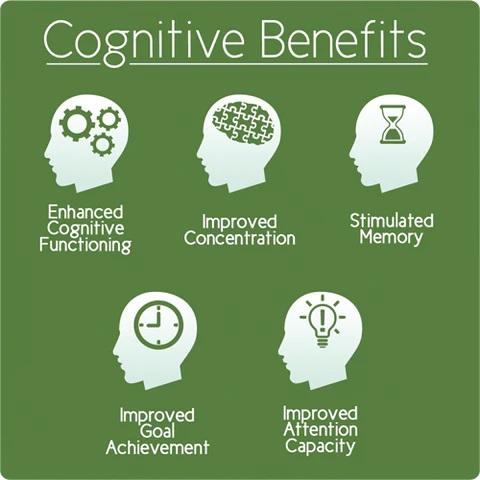Equipment
The activity requires basic gardening equipment, such as seeds, pots, and tools. It is preferable to have a dedicated garden spot outdoors. The participants should be provided with simple gardening clothes — gloves, aprons, and sun hats for the outdoor therapy sessions in hot weather. In addition, it is advised to prepare pictures and images of plants before the activity to achieve better patient engagement.
Environment
The activity can be conducted indoors; however, an outdoor garden spot would create an opportunity to host the therapy sessions in more pleasant conditions for the patients.
Activity Description
The activity’s purpose is to enhance the environmental awareness of patients with dementia and engage them in social interaction (Therapeutic Recreation, n.d.). Horticultural therapy is effective at reducing agitated behavior, stabilizing emotions, and increasing social interaction in patients diagnosed with dementia (Lu et al., 2020). A therapist helps the patients to recall knowledge of plants and gardening, as well as their past experiences. Horticultural therapy offers various cognitive benefits, as presented in the image. Activity usually lasts several months, depending on the plant’s growth.

Instructions
- Group size: any;
- Four stages: preparation, seed planting, transplantation, harvesting (Therapeutic Recreation, n.d.);
- Stage 1: The instructor gathers the patients, shows them plant images, and asks questions about what makes plants grow. Then they show the seeds and let the patients touch and describe them;
- Stage 2: Under the instructor’s guidance, the patients plant seeds in pots and water them at an appropriate time;
- Stage 3: Depending on the plant’s growth, the instructor transplants them into a garden spot. The patients may help if their physical condition allows them to do that. Regardless, work should be done in a relaxed manner — the instructor should encourage communication between the patients and provide them with soft drinks so they can enjoy the atmosphere;
- Stage 4: The instructor helps to harvest the plants so the patients can enjoy the results of their labor.
Leadership Considerations
- The leader (instructor) should introduce themselves in a friendly and casual tone;
- It is important to maintain communication with the patients — their experience should be as interactive as possible;
- Servant leadership is optimal for the activity since the ultimate goal lies in helping the patients to enhance their cognitive functions and overall well-being;
- Consequently, it is necessary to stay patient, cheerful, and welcoming throughout the activity;
- The instructor should stay close to the patients to oversee and help them if necessary;
- Safety considerations: The instructor should remain vigilant and observe the patients in order to prevent any potential injuries, especially when they use gardening tools;
- Necessary precautions: The patients must be provided with protective clothing, such as gloves and sun hats. The first aid kit should be easily accessible for the instructor;
- Special rules: No special rules are required except for safety precautions. The instructor is free to create a friendly and welcoming atmosphere by any means they deem necessary.
Discussion Questions for Participatory Horticultural Therapy
- What makes plants grow?
- What parts of the plants do you know?
- Have you ever had a garden? Have you enjoyed it, and why?
- What do you like about gardening?
- How do you feel about working together?
The goal of the activity lies in engaging dementia patients in social interaction and increasing their environmental awareness through an interactive experience. Therefore, the discussion questions are simple and directly related to the activity. These questions are designed specifically for patients diagnosed with dementia — the questions for patients with substance abuse or schizophrenia may differ.
Adaptations
- Horticultural therapy serves as a meaningful hobby for leisure time, which is helpful in substance abuse treatment. Furthermore, addicted people may start perceiving alcohol and drugs as weeds that must be weeded out in order to become healthy human beings (Ascencio, 2018);
- A pilot study by Stowell et al. (2018) showed that horticultural therapy contributes to the reduction of stress, anxiety, and depression levels in veterans with post-traumatic stress disorder (PTSD);
- A review by Ascencio (2019) confirmed that horticultural therapy led to improvements in social, vocational, psychological, and neurophysiological domains in patients diagnosed with schizophrenia.
Adaptation Example in Detail: Schizophrenia
Horticultural therapy treats various symptoms of schizophrenia: psychosis, problems with attention, memory, auditory/visual perceptions, and emotional processing (Ascencio, 2019). Improvements in social skills included verbal interactions, communication skills, understanding of non-verbal communications, social space recognition, eye contact, and group adaptation (Ascencio, 2019). Vocationally, the patients regained the ability to work without supervision, cope with pressure, and be on time to a certain extent (Ascencio, 2019). Psychologically, the patients experienced decreased anxiety and stress, increased self-esteem, and a feeling of being respected for participation(Ascencio, 2019).
References
Ascencio, J. (2019). Horticultural therapy as an intervention for schizophrenia: A review. Alternative and Complementary Therapies, 25(4), 194-200.
Ascencio, J. (2018). Offenders, work, and rehabilitation: Horticultural therapy as a social cognitive career theory intervention for offenders. Journal of Therapeutic Horticulture, 28(1), 21-28.
Lu, L. C., Lan, S. H., Hsieh, Y. P., Yen, Y. Y., Chen, J. C., & Lan, S. J. (2020). Horticultural therapy in patients with dementia: A systematic review and meta-analysis. American Journal of Alzheimer’s Disease & Other Dementias, 35, 1-11.
Stowell, D. R., Owens, G. P., & Burnett, A. (2018). A pilot horticultural therapy program serving veterans with mental health issues: Feasibility and outcomes. Complementary Therapies in Clinical Practice, 32, 74-78.
Therapeutic Recreation. (n.d.). Gardening, horticulture, nature crafts and recreation therapy.